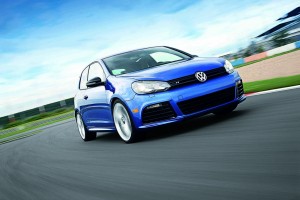There’s one fact that everyone seems to agree on: Toyota did not maintain its lead in the global automotive sales sweepstakes last year, the maker suffering significant production losses due to Japan’s March 11 earthquake and tsunami, and the subsequent flooding in Thailand.
While Toyota has not yet released its final numbers for 2011, it signaled they’ll be down at least 6%, to just below 8 million, which would knock the maker out of the box for the first time in three years.
General Motors, on the other hand, claimed victory for the first time since it began its headlong plunge into bankruptcy, the maker reporting global sales of 9.03 million – including a record 4.76 million under its Chevrolet brand alone. But that may be part of the problem. While Volkswagen is not openly challenging GM’s claim, officials with the German maker have been quietly raising some questions about just exactly how its U.S. rival added things up.
Part of the problem is that GM is including sales by all of its various Chinese joint ventures in its global total. That includes vehicles produced in China as part of a joint venture with Shanghai’s SAIC, as well as more than 1 million microvans sold by Wuling, a fast-growing maker in southern China that is owned, in part by both SAIC and GM.
Since the American giant has only a minority stake in Wuling most industry analysts do not put its sales in the General Motors column.
“We have to draw the line somewhere and this at least gives us some consistency around the globe,” Jeff Schuster, an analyst with forecasting firm LMC Automotive in Troy told The Wall Street Journal.
Joint ventures and alliances have become more than the norm than the exception in today’s auto industry. Indeed, the Renault-Nissan Alliance tallied sales of 8.03 million for 2011, leapfrogging Toyota and coming in just behind VW’s 8.39 million.
The Euro-Asian alliance has extensive cross-holdings, jointly plots much of its product strategy and shares a CEO – Carlos Ghosn. But they technically remain independent companies that would drop precipitously were their sales counted individually.
Notably, Renault and Nissan do not include sales by the German-based Daimler AG, the maker of Mercedes-Benz, Maybach and Smart products rapidly expanding the number of joint ventures it has signed up for with the Renault-Nissan Alliance.
Of course, Volkswagen also includes figures that some might challenge. In the strange bedfellows world of Chinese manufacturing, VW’s primary affiliate is the same one that GM has cozied up to: SAIC. Of course, VW only counts cars it produces that wear one of its many brand badges, including both the Volkswagen and Audi nameplates.
There’s no doubt Volkswagen would likely to be seen as the victor, the maker’s CEO Martin Winterkorn setting out a goal of firmly reaching the top spot by 2018. For now, U.S. spokesman Tony Cervone downplays the debate, seemingly allowing GM to snatch the crown.
“I don’t think there is any body at Volkswagen that has said we’re number one,” Cervone said.
For his part, GM spokesman Alan Adler also downplayed the importance of regaining the lead, insisting, “We’re focused on profitable growth. We did not make any claim beyond providing our annual sales.”
There’s little doubt that however they play down the final numbers all three makers will be pushing hard to maintain their momentum in 2011 – or pick it back up, in the case of Toyota. The Japanese giant’s CEO Akio Toyoda has said he hopes to top 10 million sales by mid-decade.
Paul A. Eisenstein contributed to this report.

